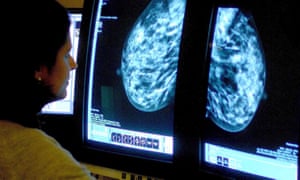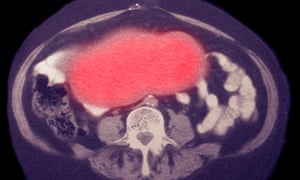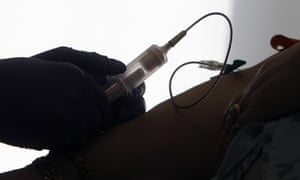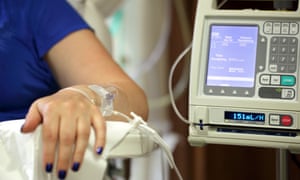Genetic tests can help determine your risk—and possibly save your life…
Diane M. Simeone, MD, an internationally recognized surgeon and scientist, the associate director for translational research at Perlmutter Cancer Center at NYU Langone Health and director of its Pancreatic Cancer Center in New York City.
Date July 1, 2019 Publication Bottom Line Health
CANCER PREVENTION
Pancreatic cancer is often lethal because it is rarely detected in early stages. Now, life-saving screening can monitor your risk. Read on…
Pancreatic cancer is a frightening disease because it’s usually diagnosed only when it’s reached an advanced, all-too-often lethal stage. But it doesn’t have to be that way.
Everyone knows about screening guidelines for colon cancer and breast cancer, but few are aware that screening tests for pancreatic cancer also are available. Recognizing the key risk factors for this malignancy will help you and your doctor decide whether such tests are appropriate for you or a loved one.
When a pancreatic cancer is found via a screening program, there is an 80% to 90% chance that the tumor can be removed, and up to 30% to 35% of those individuals will live for five or more years.
However, when a pancreatic cancer is found in a person who has not been regularly screened and he/she has already developed symptoms (such as abdominal or back pain, weight loss, nausea and/or jaundice), there is only a 15% chance that it can be removed. This lack of early detection, along with the need for improved therapies, has resulted in a persistently low overall survival rate of 9% for pancreatic cancer patients.
Here’s how to spot pancreatic cancer before it’s too late…
Know Your Risk Factors
The first step to staying ahead of pancreatic cancer is knowing how to assess your risk factors. Your risk is higher if you have any of the following…
• Two or more relatives with pancreatic cancer, including one first-degree relative (parent, sibling or child).
• A first-degree relative who developed pancreatic cancer before age 50.
• An inherited genetic syndrome linked to pancreatic cancer such as Lynch syndrome, which is also associated with colorectal cancer…or BRCA mutations, which predispose a person to breast, ovarian and prostate cancers.
Note: People of Ashkenazi Jewish (Central and Eastern Europe) descent aren’t the only ones who can have BRCA mutations. Though less common, individuals of Norwegian, Swedish, Italian and other ethnic groups have been found to also carry certain BRCA mutations.
Other factors that increase your risk for pancreatic cancer…
• Long-standing type 2 diabetes (more than five years), which increases pancreatic cancer risk by twofold. Note: New-onset diabetes—especially when weight loss instead of weight gain appears—may be an early sign of pancreatic cancer.
• Chronic pancreatitis, which can be caused by heavy use of alcohol (usually four or more drinks a day), increases risk for pancreatic cancer by about threefold.
• Personal history of another type of cancer, such as breast or colon cancer or melanoma.
• Smoking. About 25% of all pancreatic cancer cases are associated with smoking.
• Age. Most people with pancreatic cancer are diagnosed after age 45.
• Gender. Men are slightly more at risk than women.
• Obesity. People with a body mass index (BMI) of 30 or more are 20% more likely to develop pancreatic cancer.
• Workplace exposure to certain chemicals. Research has found significant links between workplace exposure to chemicals, such as pesticides, asbestos, benzene and chlorinated hydrocarbons, and increased risk for pancreatic cancer.
• Diet. Eating a diet high in processed meats and/or red meat has been linked to increased risk for pancreatic cancer. For every 50 g of processed meat consumed daily (roughly the equivalent of one hot dog or four strips of bacon), risk for pancreatic cancer increases by 19%. The increased risk linked to red meat consumption is less significant but also present—especially in men.
Important: An easy-to-use online Pancreatic Cancer Risk Assessment tool (Find-PanCancer-Early.org) can help determine your risk level based on your answers to a few brief questions about your personal and family medical history. You also can work with your own physician to do a thorough family history if you’re more comfortable with that approach.
Next Steps
If you have any risk factors for pancreatic cancer that are controllable, take immediate action. For example, stop smoking…reduce or eliminate alcohol if you are a heavy drinker…lose weight if you’re overweight…and avoid diabetes or treat it if you’ve already been diagnosed with this condition.
Meanwhile, if you have a family history of pancreatic cancer, talk to your doctor about getting your DNA examined through germline genetic testing, a blood test that looks for specific hereditary mutations in your cells and can help determine your risk. The cost of germline testing has plummeted in recent years, and there are validated tests that check a panel of gene mutations that can be performed for as little as $250. In individuals with a family history of pancreatic cancer, germline testing is typically covered by insurance.
Guidelines published in 2018 in Journal of Clinical Oncology recommend that all patients with pancreatic cancer consider having germline testing. Individuals with a strong family history of pancreatic cancer also are advised to undergo testing and screening.
At the multidisciplinary Pancreatic Cancer Center at the NYU Perlmutter Cancer Center, we found that 15% of pancreatic cancer patients have a germline mutation (also known as a “hereditary mutation”) that increased the patient’s risk of developing the disease, even if a strong family history wasn’t present.
Knowing whether such a hereditary, or germline, mutation is present in a pancreatic cancer patient may change the treatment strategy…and have implications for testing siblings and children who might also be at higher risk.
Genetic counseling will help you understand the test results and decide whether it’s appropriate to consider enrolling in a screening program run by specialists in pancreatic cancer. To locate a certified genetics counselor, consult the National Society of Genetic Counselors at NSGC.org.
If an individual is deemed to be high risk, annual imaging of the pancreas is recommended. Two types of tests are used—a pancreatic MRI/MRCP (a special type of MRI)…and an endoscopic ultrasound (EUS).
We usually start with the MRI/MRCP and then check with an EUS the next year, alternating the exams each year. The two tests are complementary and examine the pancreas in slightly different ways. Insurance should cover these tests.
The MRI is noninvasive. With EUS, an upper endoscopy is performed, passing a thin scope down the esophagus into the stomach and the first part of the small intestine after sedation is given (much like a colonoscopy, but no prep is needed). The scope has an ultrasound probe at the end, and the pancreas can be readily visualized, as it is next to the stomach.
Both tests have only very minor risks, but it’s important that the screening be done in a multidisciplinary clinic where there’s collaboration among various health-care providers, such as genetic counselors, gastroenterologists, pancreatic surgeons, radiologists and social workers as well as a tumor board, where this team of experts, along with oncologists, meets to discuss each patient’s unique situation. Pancreatic cancer is a complicated disease, and decision-making in high-risk individuals is best done with an experienced team guiding your care.
Important: Even with a genetic mutation linked to pancreatic cancer, most people will not get the disease. But with an increased risk, it is crucial to know that screening can be an effective strategy to combat pancreatic cancer. I tell my patients, knowledge is power. As we do a better job in identifying individuals at risk, we will be much better positioned to shift the disease from the advanced state to one in which many more patients have easier-to-treat, surgically resectable disease.
With a concerted effort in early detection (and prevention), along with the development of more effective therapies and clinical trial strategies, it is likely that we will see a change in survival in pancreatic cancer patients in the coming years—and it’s about time.
This is a rapidly moving field, so ask questions and seek information from doctors who are at the forefront of the research.
Getting the Best Care
The Pancreatic Cancer Action Network (PanCan.org) is a patient-advocacy group that serves as a resource for finding a high-quality pancreatic cancer center. It’s the driving force behind Precision Promise, a multicenter “adaptive” clinical trial initiative that allows multiple novel therapies to be evaluated alongside standard-of-care approaches to speed the development of new treatments.
Other excellent resources: Rolfe Pancreatic Cancer Foundation (RolfeFoundation.org), a nonprofit dedicated to early diagnosis of pancreatic cancer, research that aims to cure the disease and resources for patients and their families…and Project Purple (ProjectPurple.org), another nonprofit group that funds research to defeat pancreatic cancer and supports patients and their families.
https://bottomlineinc.com/health/cancer-prevention/pancreatic-cancer-you-can-spot-this-killer-before-its-too-late











